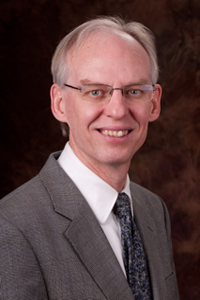 Since we moved to a new college, a typical question we hear is “what is human ecology?”
Since we moved to a new college, a typical question we hear is “what is human ecology?”
Human ecology is the study of human-environment interaction. The human ecological perspective is central to understanding physical activity.
The first course our kinesiology undergraduates take is called Biobehavioral Basis of Physical Activity. In this course, students learn about physical activity influences and outcomes. It quickly becomes apparent to our students that these influences and outcomes occur within the individual (gene, cell, physiological system, psychological system) and interact with environmental processes (groups, settings, communities, culture). This is human ecology.
After the initial survey kinesiology course, students complete several prerequisites and then complete a team-taught course in exercise physiology and a team-taught course in public health physical activity. In these courses a professor teaches for 4 weeks in his or her specialty area.
In a time when many undergraduates at universities across the U.S. predominately receive lectures by graduate student instructors, K-State kinesiology undergraduates are exposed to 8 international experts teaching in their research area of expertise. This is the best experience in the U.S.
The exercise physiology course overviews physiological systems including cardiovascular, respiratory and muscle. The public health course overviews human-environment interactions on several levels: individual, group, setting (school, out-of-school, sport, worksite), community and sociocultural.
After these initial courses, students then specialize in either exercise physiology or public health physical activity. These degree emphases in exercise physiology and public health physical activity are also offered at the master’s (M.S., MPH) and doctoral (Ph.D.) levels.
Across all these degree programs, all our students gain an understanding of the impact of human ecology on physical activity from gene to culture. They also learn to influence our human ecology in their future jobs in healthcare, worksites, schools and other community settings to promote physical activity.
The College of Human Ecology hired John Buckwalter as dean last year. Dean Buckwalter is an exercise physiologist who conducted laboratory research funded by the National Institutes of Health. Prior to his research career, he was a certified physical education and Spanish teacher and former Division 1 basketball player.
Dean Buckwalter has mentioned several times that the national reputation of the Department of Kinesiology is what initially drew him to apply to K-State. With an excellent faculty and the support of a new college and new dean, our department is poised to receive recognition as a top ten Kinesiology Department in the U.S.
The move to the College Human Ecology was a great accomplishment for our department. We were the first department to move at K-State in more than 20 years.
I also have been very excited about some of the evidence my laboratory is finding on ways to increase healthful physical activity and nutrition in children. These physical activity promotion strategies are based on what we know about human ecology, which is focused on going beyond individual education and turning to building healthful physical activity environments. We have had programs show promising results creating healthy places in childcare centers, Girl Scouts, summer camps and after-school programs.
Because I am very confident in the future of the department, I have decided to focus my efforts on working with students and conducting research. I will leave the head position at the end of this academic year.
Craig Harms has been named department head. This is an exciting time for me as I feel like we have accomplished a lot as a department and I believe the department in in good hands under Dr. Harms’s leadership.
